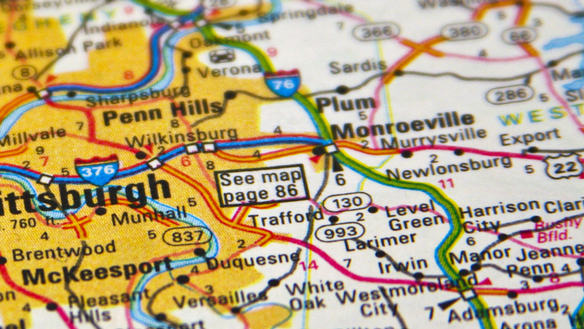
Ever consider a different route?
For years, Dave drove the same roads from Chicago to his folks’ house in eastern Pennsylvania. That is, until the first time he drove it with his new wife, Jen. Jen decided she would consult Google in order to determine the best route. Dave found this utterly ludicrous! After all, hadn’t he been driving the best, fastest, and only route for years?
Apparently not. When it was Jen’s turn to drive, and her new husband fell asleep in the passenger seat next to her, she switched to her route. And when Dave woke up, they had already arrived, an hour and a half earlier than expected. It was the better way.
Better
But when we walk a road over and over again, it’s hard to see anything as better! Habit establishes a way of life, an internal map, if you will. And with regard to impacting the lives of those around us for Jesus, have we stopped to ask ourselves if the internal maps we are operating from prevent us from getting deeply involved in what God is up to on planet Earth?
But how do we do it? How do we work our way toward a better map? Is it possible to readjust our missional GPS?
A change in behavior
The church needs a change in behavior. In his book The Forgotten Ways, Alan Hirsch writes, “The Hebrews acted their way into a new way of thinking instead of thinking their way into a new way of acting.” Hirsch continues with this thought:
Many church leaders experience this on a regular basis: it starts with the recognition of some sort of problem in the local church together with a desire to address it . . . so they go to a conference to access a whole lot of new ideas about church renewal, leadership, and mission. The problem is that this is all they get – new thinking. They still have to deal with an unchanged congregation. And on a deeper look they soon realize that their own behaviors remain unchanged. It is genuinely hard to change one’s behaviors by merely getting new ideas. . . . Even though gaining knowledge is essential to transformation, we soon discover that it’s going to take a whole lot more than new thinking to transform us.
Hirsch would submit that we all need to behave differently because acting will impact how we think.
Equipping with skills and practices
The 9 Arts of Spiritual Conversations are behaviors–they are skills that can be learned so that people will, as the Hebrews believed, act their way into a new way of thinking. The 9 Arts have the capacity to readjust our missional GPS.
There is another way to get to western PA.
Noticing our neighbors, praying for them behind their backs, and really listening to their life stories creates genuine empathy and compassion for our neighbors. Loving like Jesus impacts our judgmental attitudes and preconceived maps, driving us to welcome others into our lives. Yes, even those who believe differently than we do.
When the people who are outside of our churches experience us acting like Jesus and treating them with genuine interest and love, they might even be attracted to our message.
New skills and practices can provide a way to behave that incarnates the gospel in the flesh and blood of our everyday lives. If missional is about being sent and going, these 9 Arts provide the map for how we go.
